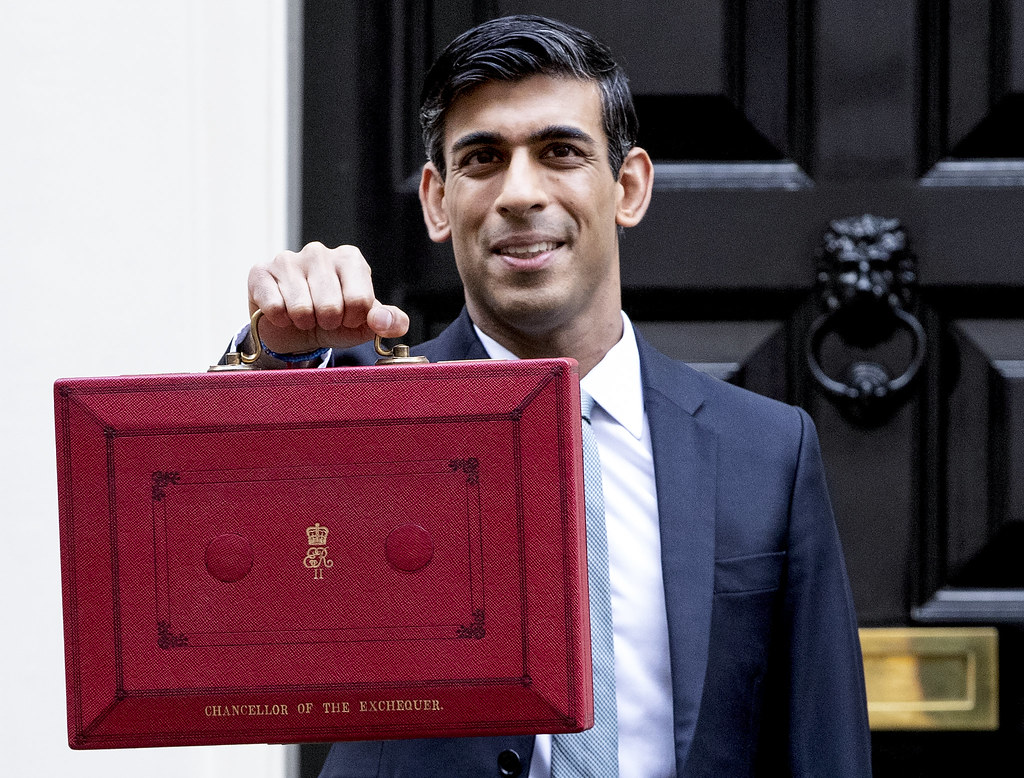Now Isn’t the Time for a General Tax Hike – We Need to Target Those Who’ve Profited From the Pandemic
The left must be wary of equating tax hikes with post-pandemic recovery. In today’s budget, Rishi Sunak should go after those whose wealth has increased over the past year.
by Ann Pettifor
3 March 2021

There are a few key things you should understand about taxes before we approach the question of whether Rishi Sunak should raise them today.
First, the government doesn’t need to tax in order to spend. Whether it’s raising Universal Credit, giving nurses a pay-rise or investing in public transport, it does not need to use tax revenues to finance that spending.
What government does need tax revenues for is to repay its debts, or bonds, three, 10, 30 years from now.
This is a bone of contention between Keynesians and Modern Monetary Theorists. MMTers argue that because governments have their own central banks – ie the Bank of England – governments can essentially print money, and do not need to repay it. I disagree.
The economy isn’t just about the monetary system – it’s an entire ecosystem. And like the biological ecosystem, the economic ecosystem is most stable when in a state of equilibrium.
What creates this equilibrium is not monetary policy, money-printing or defaulting on debt, but investment in sustainable, well-paid, skilled employment – because employment generates tax revenues to repay public debt. As soon as unemployment rises, deficits rise, and public debt becomes a problem. Just ask Mrs Thatcher.
Unlike you or me, the government can raise enormous sums of money today, at almost no cost (and like repaying a mortgage, the government can spend that money before it raises the income to repay it). On 1 March, for example, the government raised about £3bn of new finance from a bond sale on which it will effectively pay negative interest.
The reason the government can raise that kind of money is simple: it has trusted, publicly-run institutions, like the legal system, which uphold its promise to pay. But the real engine of the government’s borrowing power is down to us, its 30 million taxpayers.
It is the fact that, unlike Amazon and Apple, millions of ordinary citizens regularly pay their taxes that provides the Treasury with the collateral to raise the finance it needs. That is the great power taxpayers wield.
So is now a good time to raise taxes generally, as some are calling for? No – with some exceptions.
The reason today is not a good time for a universal tax hike is this: the pandemic has blown a crater in the economy, leaving a vast gap in consumption and investment, employment and income. Had the government not pumped out fresh income in the form of grants, furlough pay and increased benefits, the nation would now be living through a national crisis of destitution, and the social and political upheaval that would attend it (though of course, many people – overlooked by the Treasury – have been made destitute by the pandemic).
To increase taxes on the general population at this point would, as the Labour party is right to argue, simply deepen the crater by further contracting the nation’s income.
Q: Will you use the Budget, Chancellor, to help the freelancers who have been excluded from public support?
A: Nope, I’m going to target them for tax increases instead of applying a windfall tax on the excess profits of big business.
Unbelievable. pic.twitter.com/cxNHIS7z3T
— Andy Burnham (@AndyBurnhamGM) February 28, 2021
What is needed are targeted tax hikes. For while most sections of the economy took a dive through the pandemic, others – such as IT, telecoms, big pharma and supermarkets – have fared very well indeed.
As Oxfam explains in a press release for their recent report ‘Power, Profits and the Pandemic’:
[T]he protection given to shareholders [during the pandemic] has fuelled a share price boom. The top 100 stock market winners have added more than $3 trillion to their market value since the pandemic. As a result, the 25 richest billionaires have increased their wealth by staggering amounts. Jeff Bezos could personally pay each of Amazon’s 876,000 employees a one-time $105,000 bonus today and still be as wealthy as he was at the beginning of the pandemic.
Shareholders, and all other rentiers, should be taxed on their unearned income.
In short, I support a windfall tax on these huge beneficiaries of the crisis. As to the need to raise corporation tax, I would wait – then join the Organisation for Economic Co-operation and Development (OECD) and the Biden Treasury, led by Janet Yellen, to coordinate a global rise in corporation tax – especially targeting the big bad Silicon Valley platforms and other multinationals that dodge their tax-paying obligations.
Raising taxes in a slump is economic illiteracy. The best way to increase tax revenues – the government’s income – is to invest in skilled, well-paid employment. As we all know from personal experience, employment generates income – not just for the employed, but also for companies. Employment is taxed and raises income for the Treasury. That is the best way to address the public debt as we begin our economic recovery from the pandemic.
Ann Pettifor is the director of Policy Research in Macroeconomics and a council member of the Progressive Economy Forum. She is the author of The Case for The Green New Deal (2019) and The Production of Money (2017), both for Verso.


